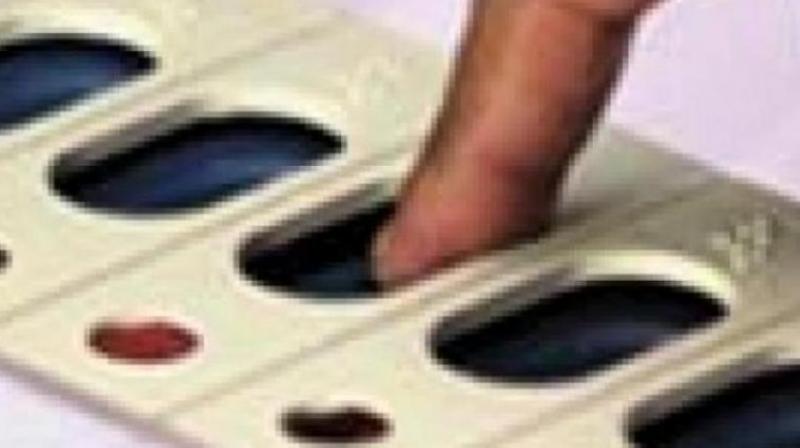Banning polls in varsities brought in legacy politics
Many including KCR started their political journeys from colleges.

Hyderabad: The ban on elections in universities in the Telugu states has given rise to “legacy politics”, most evident in the forthcoming elections, with parties nominating the relatives of senior leaders.
Student politics standing for election in universities and colleges has produced strong leaders such as Vice-President M. Venkaiah Naidu, Maharashtra Governor Ch Vidyasagar Rao, Chief Ministers K. Chandrasekhar Rao and N. Chandrababu Naidu, former Union minister S. Jaipal Reddy, and the late Y.S. Rajasekhar Reddy, to name a few.
In the TS cabinet, four ministers Koppula Eshwar, Singireddy Niranjan Reddy, G. Jagadeeshwar Reddy and Etala Rajendar came up through college politics.
Former student leaders believe politics should be allowed at university level.
According to Osmania University alumni and Water Resources Development Corporation chairman, V Prakash Rao, universities which were ideological centres until the 1980s have become manufacturing units, and provide low quality education and socio-political awareness. He said that it was because of university and college elections that several leaders who are playing a major role at national level could come up.
Mr Prakash said during his student days, Room No. 57 in Osmania University used to be the centre of student activism, where they could express their views, irrespective of ideology and socio-economic backgrounds.
Every contemporary issue during that time was discussed. “Issues right from price hike of commodities to capitation fee were discussed in Room No. 57. Students even boycotted classes to resolve the then public issues and protest socio-economic discrimination,” he said.
He strongly recommends allowing elections in colleges and universities. He attributes student suicides to the lack of a strong student leadership which can provide support. This was so even during the statehood agitation.
He said due to lack of discussion and debates in universities and colleges, students lack vision and socio-political awareness. In 2007-08, when Chandrasekhar Rao left the United Progressive Alliance, he recognised student leaders and encouraged them.
“As a result, student leaders such as Balka Suman, Bonthu Rammohan, Baba Fasiuddin, Pidamarthi Ravi and several others, have emerged. I strongly recommend university and college elections for a better society, or else legacy politics, caste, and cash will dominate,” he said.
BJP MLC N. Ramchander Rao, contesting from the Malkajgiri Lok Sabha constituency, says the ban on university elections is only part of the reason for the rise of legacy politics.
He said privatisation and commercialisation of education post-liberalisation had a bad effect on student leadership. Good students in universities only pursue professional courses like engineering and medicine for individual benefit but not for society as a whole. He said that private institutions were successfully killing off conventional BA, BSc, BCom and social sciences courses, and parents and students now look down on these courses.
“I hope Room No. 57 in Osmania University, which was called Hyde Park (after the famous corner in Hyde Park in London), will get back its past glory and produce social leaders. I appeal to student organisations to organise on an ideological basis, and not on the basis of caste, for a better society,” Mr Ramchander Rao said.
Several politicians see nothing wrong in their kith and kin carrying forward the “political legacy”, when the children of IAS officers become IAS officers, and doctors’ children become doctors.
Former student leaders criticised this stand saying that becoming an IAS officer or a doctor requires people to work towards attaining a certain qualification unlike becoming a politician.

